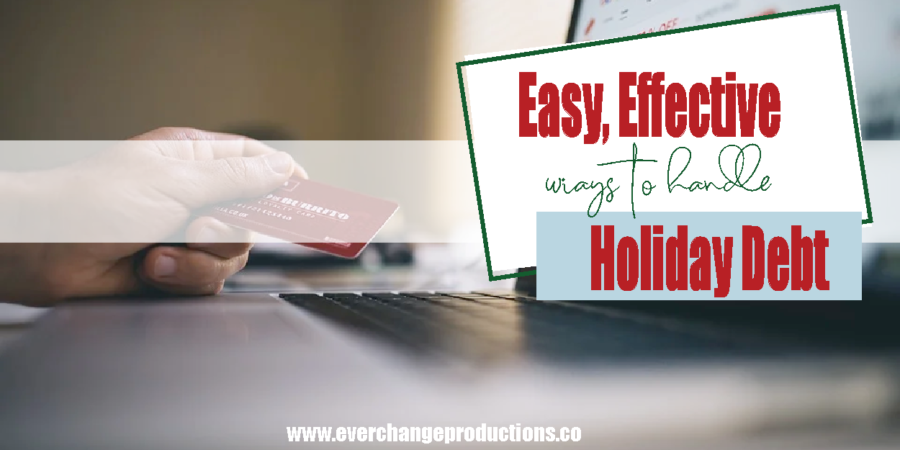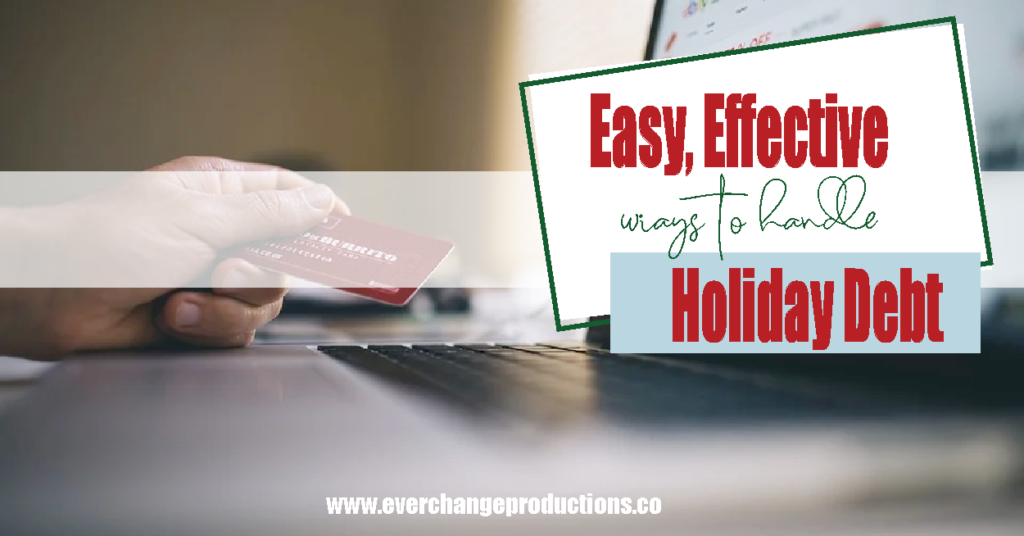Christmas Debt Statistics
As per a report given by the accounting firm Deloitte, the average American household incurred $1,496 in holiday debt in 2019. Deloitte also projects a 1% to 1.5% increase in household holiday spending in 2020. But the numbers might increase beyond our expectations.
A survey done by New York-based Union Bank revealed that ⅔ consumers create a budget for their holiday shopping and expenses, but ⅓ of the consumers express that they do not have such a budget ready, so it might take more than 6 months to pay off their holiday credit card debt. Many consumers, especially teenagers do not have a proper money-saving plan to handle the aftershock of the holiday debts they incur.
In short, the holiday season 2020 might become expensive for a group of people, and it may impact their lives with an additional debt burden. The situation might become worse, as because according to the Federal Reserve, less than 50% of common people pay off their credit card bills fully every month. So, the majority of consumers will be carrying that holiday debt for the coming months of 2021 and gather more interest payments. As a result, their finances will be doomed for the rest of the year, and so on.
If you find yourself in a similar situation where you might end up carrying huge holiday debts, it is ok to get worried. You also might be thinking – Is there any way you can handle holiday debts properly and save money?
Yes, there are a few steps you may follow. Let’s check them out!
Steps to handle Holiday debts and save more
Assess overall financial situation
Before following any major steps to handle debts, it is important to analyze your entire financial situation. You must consider your monthly budget and your short/long-term financial goals before implementing any pay off plan.
You should prepare a list of all of your debts, payment due dates, minimum payment amounts, interest rates, and the period in which you have to pay off your holiday debts. You should remember that paying off debt is important, and so does building a strong financial future. So, do not avoid other financial goals you may wish to achieve in 2021.
Create a budget
Be realistic about how much you need to spend each month. To determine that figure, you need to create a solid budget and categorize every expense that you need or intend to pay. Give priority to the essential costs like food costs, household expenses, groceries, mortgage payments, utility bills, etc. You might need to avoid costs like eating out, entertainment expenses, vacation, etc. Your main focus should be determining your income, tracking and analyzing spending, and reducing them as much as possible.
Identify the category where you can stop wasting money and trim your spending. Look out for cheaper discount stores to buy groceries, choose basic cell phone plans and minimum TV subscriptions to save as much as possible. Keep away from doing big purchases until you have your debt paid down and money saved up.
Follow a DIY debt repayment strategy
You may follow a loan repayment strategy to pay off your debts faster and with more savings.
You have two popular methods – the debt snowball method and the debt avalanche method.
Using a debt snowball method you can pay off your debts faster. It normally involves listing up your debts from the lowest balance to the highest one, and you need to pay them off starting from the smallest balance. Once you pay off an account, target the next one. This way the number of unpaid debt accounts will be reduced faster.
Don’t forget to make the minimum payments to the other debt accounts, unless you want to increase your interest and late fees.
The avalanche method involves focusing on the highest interest debt accounts first. You need to prepare a list of your unpaid debts from highest interest rate to lowest rate. Then make minimum payments to all the debt accounts, and engage the surplus money in your hand into the highest interest account. Once it is paid off, target the next one.
Using this strategy can help you to save more on interest as you are targeting the highest balances first. But it may take a while to pay off your holiday debts entirely.
Following any of these strategies may help you in living a debt free life.
Use tax returns and holiday bonuses
Holiday bonuses and tax returns are two larger lump sums of money that can help you to make any big payments in emergencies. So, if you consider your unpaid holiday debts as an important financial burden, then you may choose this option.
Make sure you are taking full advantage of getting such extra income and put it toward paying down holiday debts and boost your credit score.
Initiate automatic payments
The best way to stop increasing interest on your existing holiday debt is to make on-time payments. So, automate your debt payoff as early as possible. You have all the information of your probable monthly payments to become debt-free. So, set up automatic payments with your bank to transfer money immediately when you get your paycheck. This way you don’t miss any payment and your credit score will remain intact.
Increase your income
If you have a steady income with a good salary, it is well and good. But still, you should work on increasing your total income every month. You can choose any type of side hustle that suits your interests.
As long as you’re able to handle a little extra work pressure, you can earn more than your usual income and can put it towards your holiday debt payoff.
Negotiate with the creditors
Credit card bills are the most annoying holiday debts that you can imagine. To ease up your monthly payments, you may contact your creditors and ask them about the identification and onboarding processes to lower the interest or come up with easy repayment options. The creditors may work with you happily if you have a good credit score, have old accounts with them, and carry a good payment history.
Get a balance transfer card
You may choose a balance transfer method to transfer all your high-interest credit balances and pay them later with zero interest. Many credit card companies may offer you a 0% APR balance transfer card if you have a good credit score and a decent payment history.
The 0% APR period may last for 12 to 18 months, depending on the credit card company’s offer. During that time you don’t have to pay a single dollar as interest. So, it will help you to save more on holiday debt payments.
So, what are you waiting for? Grab your bills, calculator, pen, and start analyzing your holiday debts. The sooner you start, the better.
Author Bio: Patricia Sanders is a professional content developer and a regular contributor to debtconsolidationcare. She specializes in the financial niche and is well known for her unique financial tips that can be very effective. She always tries to help people, suffering from financial hardships, through her writing. Her continuous effort has earned her recognition and honor in the financial blogging industry. Besides writing, she loves to travel and gather information on various financial topics. To get in touch with her (or if you have any questions regarding this article) email at sanderspatricia29@gmail.com
Don’t forget to pin this information for later!


